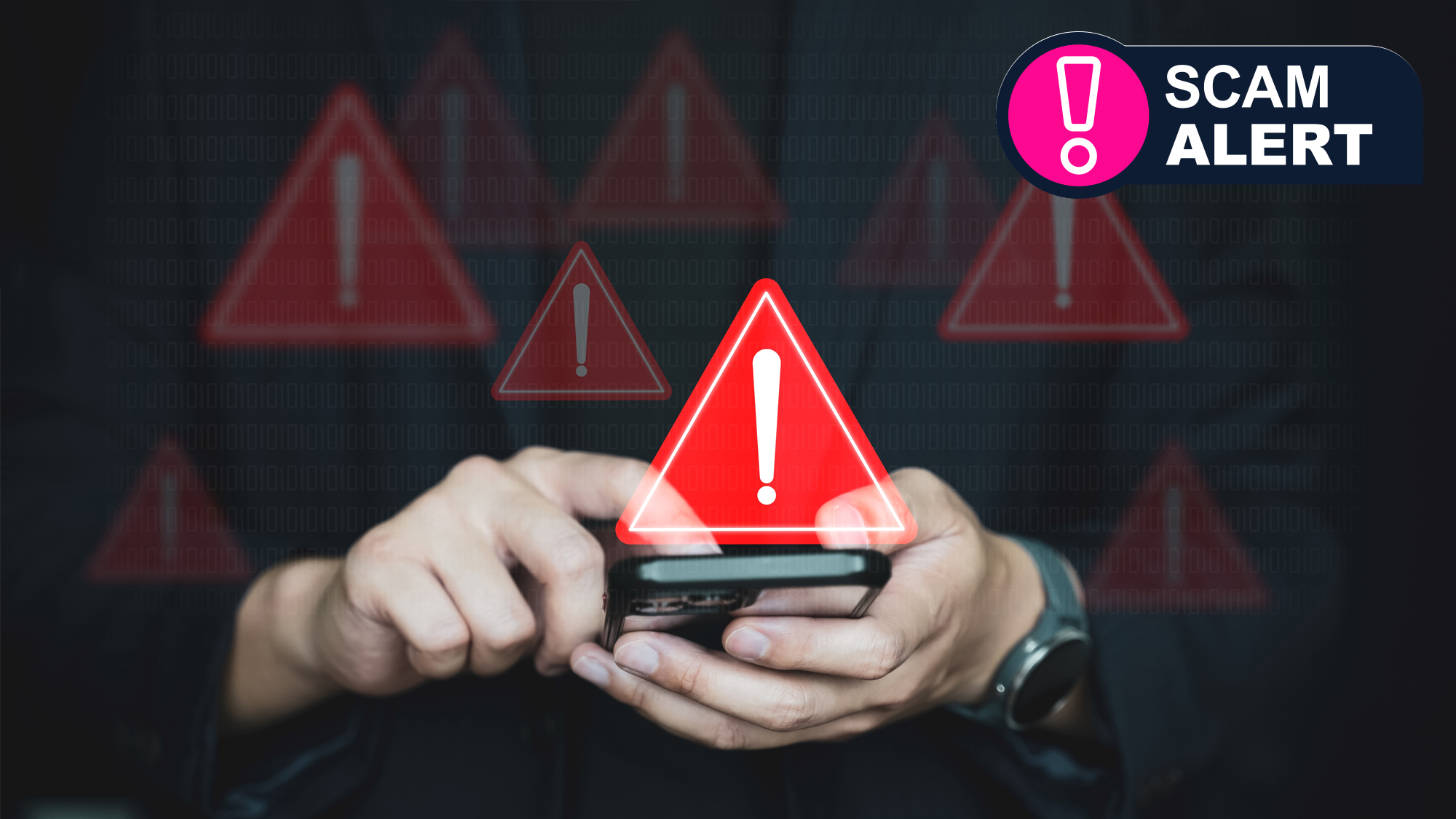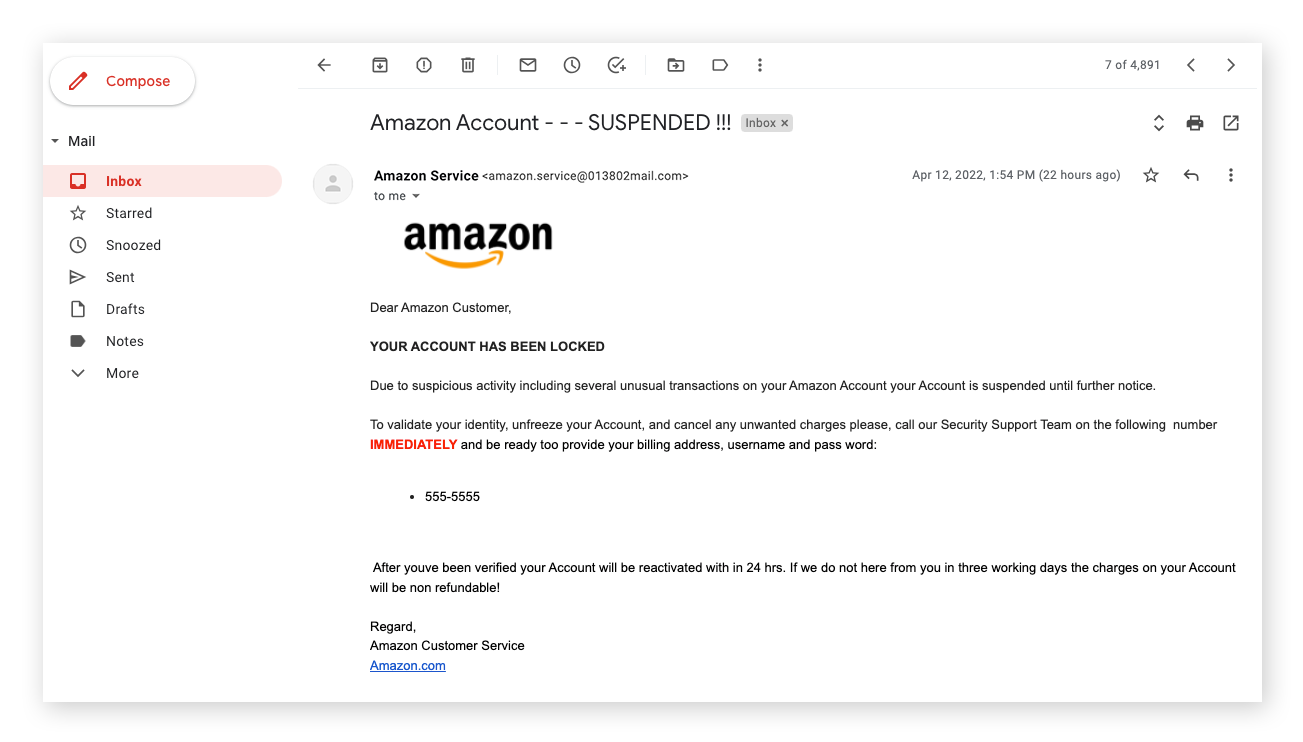Amazon warns millions of users about fake membership subscription emails - here's how to stay safe ahead of Prime Day
Do not click on any link in a suspicious email, and delete it immediately

Sign up for breaking news, reviews, opinion, top tech deals, and more.
You are now subscribed
Your newsletter sign-up was successful
- Amazon Prime users are being hit with fake renewal emails designed to steal login details
- Clicking fake “cancel” links could expose your banking info to professional online fraudsters
- Scammers are mimicking Amazon to trick shoppers before the four-day global Prime Day event
With Amazon Prime Day upon us, and set to run in twenty-six countries, the company is urging customers to be wary of a growing wave of cyber scams.
The company has sent out emails informing the over 200 million Prime members it has seen a sharp rise in fraudulent activity, especially impersonation attempts using fake emails, texts, and calls, ahead of the event.
These scams often target unsuspecting users with misleading claims about their Amazon Prime membership or account security, attempting to extract sensitive data or login details.
Phishing scams use fear tactics to defraud unsuspecting victims


Fake emails often try to trick you into revealing personal details - look out for tell-tale signs such as:
- Starting with generic greetings such as “Dear customer”
- Using urgent or threatening language to pressure for quick action
- Coming from strange or misspelled email addresses
- Suspicious links or unexpected attachments
- Typos or poor formatting throughout
- Asking for passwords or financial information
- Being sent from unknown or unofficial sources
Amazon says Prime members are being targeted by emails which falsely claim their subscriptions are about to renew at a new price.
These emails sometimes contain personal information and may include a "cancel subscription" button that redirects to a fake login page.
"We've recently noticed an increase in customers reporting fake emails about Amazon Prime membership subscriptions," Amazon said in an email to Prime members.
The aim is to trick users into revealing login credentials or banking information.
Sign up to the TechRadar Pro newsletter to get all the top news, opinion, features and guidance your business needs to succeed!
Amazon warns clicking on links in these fake emails can lead to compromised accounts and stolen payment details.
The company says such activity is not limited to email, as between February and March 2025, Amazon recorded a 71 percent surge in scam phone calls in the UK alone.
Impersonators typically warn users about false order issues or claim urgent action is needed.
“Scammers rely on urgency and fear,” Amazon explained, noting they often pretend accounts will be locked or charged unless immediate steps are taken.
In one notable case from Prime Day 2024, there was an 80 percent spike in impersonation scams in the US, a trend that is already repeating this year.
Although Amazon fights these scammers, and says it shut down over 55,000 phishing websites and 12,000 fake phone numbers in 2024 alone, the volume of new threats remains high.
The company says that 94% of impersonation scams globally arrive via email, text, or phone.
In a March 2025 update, Amazon also revealed social media scams had risen by 33 percent since December 2024, as fraudsters responded to customer complaints using counterfeit profiles.
How to stay safe
To avoid falling for scams, always access Amazon through the official app or by typing the website address directly into your browser.
Check the Message Center in your account for real messages, and enable two-factor authentication to block unauthorized access.
Never reuse passwords across sites, as stolen credentials can be used elsewhere.
Be cautious with messages that demand quick action, and think before clicking any link.
Confirm that items are “Shipped and sold by Amazon” for stronger protection.
If you mistakenly click on any suspicious link, monitor your debit or credit card closely for any unauthorized transactions and report the same to your bank.
The best antivirus helps to detect phishing attempts, while the best malware protection blocks data theft and can help you stay safe in this shopping season.
You might also like
- These are the best firewall offerings around today
- Common internet scams and how to avoid them
- FBI issues urgent warning about new SMS toll scam

Efosa has been writing about technology for over 7 years, initially driven by curiosity but now fueled by a strong passion for the field. He holds both a Master's and a PhD in sciences, which provided him with a solid foundation in analytical thinking.
You must confirm your public display name before commenting
Please logout and then login again, you will then be prompted to enter your display name.